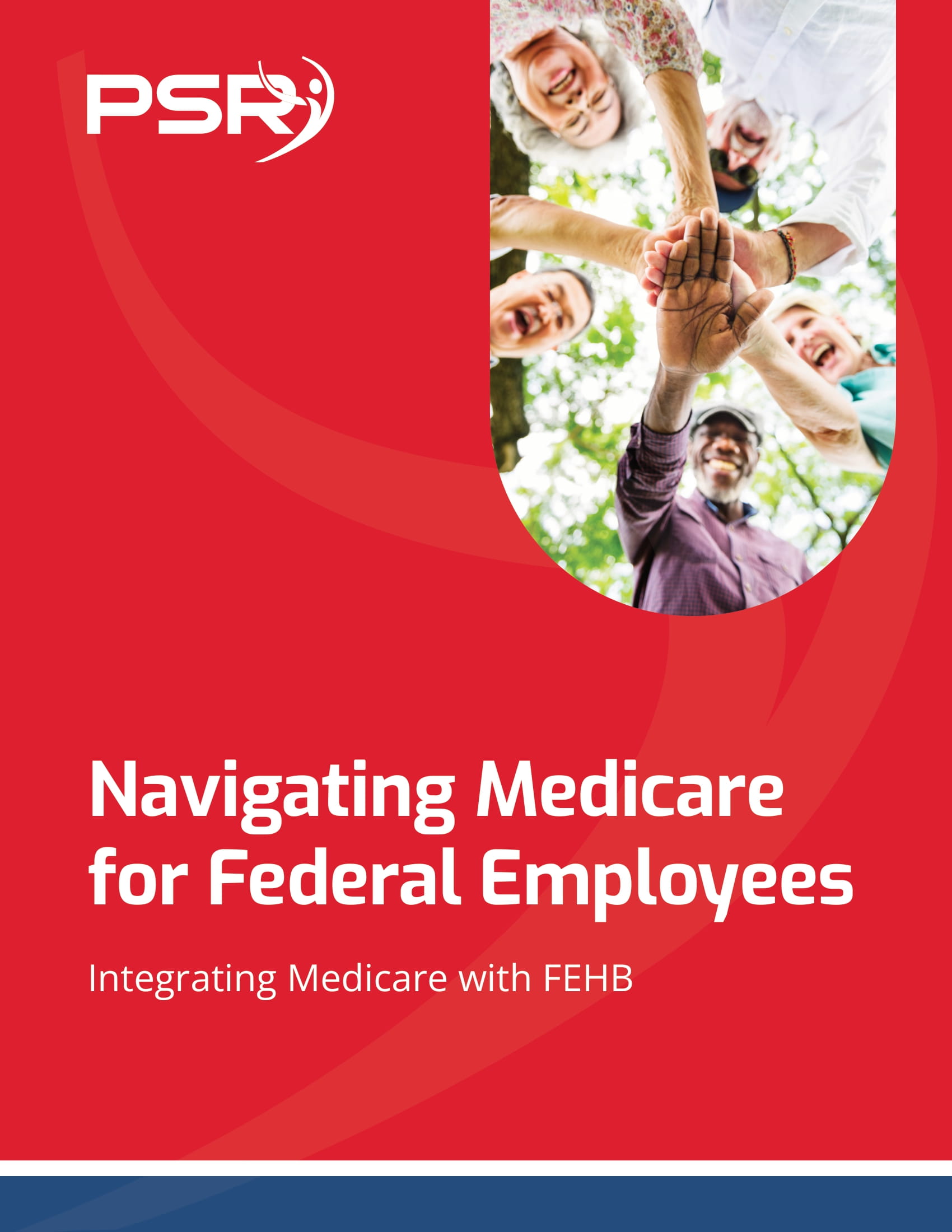Key Takeaways:
- Early retirement can be appealing for federal employees, but understanding the impact on your FERS pension, Thrift Savings Plan (TSP), and healthcare options is essential to making a smooth transition.
- Critical factors such as the Minimum Retirement Age (MRA), penalties for early withdrawal, and planning for healthcare coverage need to be weighed before making the leap.
Dreaming of Early Retirement? Federal Employees, Here’s What You Need to Consider Before Punching Out for Good
- Also Read: Divorce and Your Federal Pension—What Happens When You Split Assets and How It Could Affect Your TSP
- Also Read: What Happens to Your Federal Benefits After Divorce? Here’s the Lowdown
- Also Read: The Best FEHB Plans for 2025: Which One Fits Your Lifestyle and Budget the Best?
Federal employees have access to a robust retirement system, especially under the Federal Employees Retirement System (FERS), but leaving the workforce early could affect your pension, healthcare, and other essential benefits. Let’s break down the most important factors to consider before you decide to take the leap into early retirement.
Understanding the Minimum Retirement Age (MRA)
The first thing federal employees need to consider when contemplating early retirement is their Minimum Retirement Age (MRA). Under FERS, the MRA is the earliest age at which you can retire and begin receiving a reduced pension. Your MRA is determined by your birth year and generally falls between 55 and 57. If you retire at your MRA with at least 30 years of service, you can start collecting your full pension. However, if you have fewer than 30 years of service, you may need to accept a reduced pension if you choose to retire early.
For employees with at least 10 years of service, there is the MRA+10 option, which allows you to retire early with a reduced pension. This means that for every year you are under age 62, your pension will be reduced by 5%. While the MRA+10 option provides an avenue for early retirement, the pension reduction can significantly lower your retirement income, so it’s important to carefully assess whether this reduced pension will be enough to support your lifestyle.
FERS Pension: What Happens When You Retire Early?
Your FERS pension is calculated based on a formula that takes into account your high-three average salary and your years of service. When you retire early, the number of years of service you have completed by your retirement date directly impacts your pension payout. Federal employees with at least 20 years of service can retire at age 60 with a full pension, while those with 30 years of service can retire at their MRA without a reduction in benefits.
However, retiring before meeting these thresholds could result in a lower pension for the rest of your life. For example, if you retire under the MRA+10 option, your pension will be reduced by 5% for each year you are under age 62. This can have a long-term impact on your financial stability, especially if you don’t have other sources of income to supplement your pension.
One potential advantage for law enforcement officers (LEOs), firefighters, and air traffic controllers is that they have special early retirement provisions that allow them to retire earlier, often with a more favorable pension calculation. If you fall into one of these special categories, your early retirement options may be more flexible.
Thrift Savings Plan (TSP) Withdrawals: How to Avoid Penalties
The Thrift Savings Plan (TSP) is another essential component of your retirement plan, and early retirees need to understand the rules around TSP withdrawals to avoid penalties. If you retire before age 59½ and want to access your TSP funds, you could be subject to a 10% early withdrawal penalty on top of the income taxes owed on the distribution. This penalty can significantly reduce your retirement savings if not planned for properly.
However, there are exceptions to this rule. Federal employees who retire after the year they turn 55 (or age 50 for LEOs, firefighters, and air traffic controllers) can withdraw from their TSP without facing the early withdrawal penalty. Additionally, you can avoid the penalty by opting for a series of substantially equal periodic payments (SEPPs) based on your life expectancy, although this method comes with strict rules.
Planning your TSP withdrawals is critical for early retirees. If you don’t want to rely heavily on your pension in the early years of retirement, managing your TSP account carefully to avoid penalties and tax surprises will help preserve your savings for the long term.
Health Insurance: What Happens to Your FEHB Coverage?
One of the most important benefits federal employees enjoy is their health insurance under the Federal Employees Health Benefits (FEHB) program. If you retire early, you need to carefully consider how your FEHB coverage will continue and how you will manage healthcare costs before you become eligible for Medicare at age 65.
The good news is that as a federal retiree, you can continue your FEHB coverage into retirement as long as you were enrolled in the program for the five years immediately preceding your retirement. This applies regardless of your age when you retire, so even early retirees can retain their FEHB benefits. However, if you retire before age 65, you’ll need to pay for FEHB coverage without the support of Medicare, which can lead to higher healthcare costs.
Additionally, if you plan to coordinate your FEHB coverage with Medicare later in retirement, it’s important to understand how these programs work together. Many federal retirees opt to keep both Medicare and FEHB to ensure comprehensive coverage, but this strategy can be costly if not carefully planned. Early retirees should factor in healthcare costs when calculating their retirement budget, especially given the rising costs of health insurance and medical care.
Social Security: When Should You Claim?
For federal employees under FERS, Social Security is a key part of their retirement income. However, retiring early means you’ll need to decide when to claim your Social Security benefits, and this decision can have a major impact on your long-term financial health.
While you can start claiming Social Security as early as age 62, doing so will result in a permanent reduction of your monthly benefit. For each year you claim before your full retirement age (which is 66 or 67, depending on your birth year), your Social Security benefit will be reduced by approximately 6% to 7%. This means that if you claim Social Security at age 62, your benefit could be reduced by as much as 30%.
On the other hand, delaying Social Security until after your full retirement age increases your monthly benefit by 8% per year, up to age 70. For early retirees, the decision of when to claim Social Security should be based on your overall retirement income strategy. If you have enough pension and TSP income to support your lifestyle, delaying Social Security may be a smart move to maximize your benefit.
The FERS Special Retirement Supplement (SRS)
For federal employees who retire before age 62, the FERS Special Retirement Supplement (SRS) is an additional benefit that can help bridge the gap until Social Security kicks in. The SRS is designed to provide early retirees with income that approximates what they would receive from Social Security at age 62.
The SRS is available to federal employees who retire before age 62 with at least 30 years of service, or at age 60 with 20 years of service. It is not available to those who retire under the MRA+10 option. The amount of the supplement is based on your years of service and your estimated Social Security benefit, but like Social Security, it is subject to an earnings test if you continue to work after retirement.
While the SRS can be a valuable source of income for early retirees, it’s important to note that it ends at age 62, when you become eligible for Social Security. Planning for this transition is crucial to avoid an income shortfall during your retirement years.
Inflation and Cost-of-Living Adjustments (COLAs)
Another important consideration for early retirees is how inflation will affect your retirement income. FERS pensions are adjusted for inflation through cost-of-living adjustments (COLAs), but these adjustments are capped at 2% when inflation exceeds that level. Over time, this cap can erode the purchasing power of your pension, especially in high-inflation environments.
For early retirees, the risk of inflation is even greater because your retirement could last for 20 or 30 years. It’s important to plan for the possibility that your pension and Social Security income may not keep pace with rising costs, and consider strategies such as investing in inflation-protected assets or managing withdrawals from your TSP to hedge against inflation.
Final Thoughts on Early Retirement
Early retirement can be an exciting prospect, but it requires careful financial planning to ensure that your pension, TSP, and healthcare coverage will support you for the long term. Before making the decision to retire early, federal employees should evaluate their retirement income sources, consider the impact of penalties and reductions, and plan for rising healthcare costs and inflation. With the right strategy in place, early retirement can be the beginning of a fulfilling and financially secure future.













